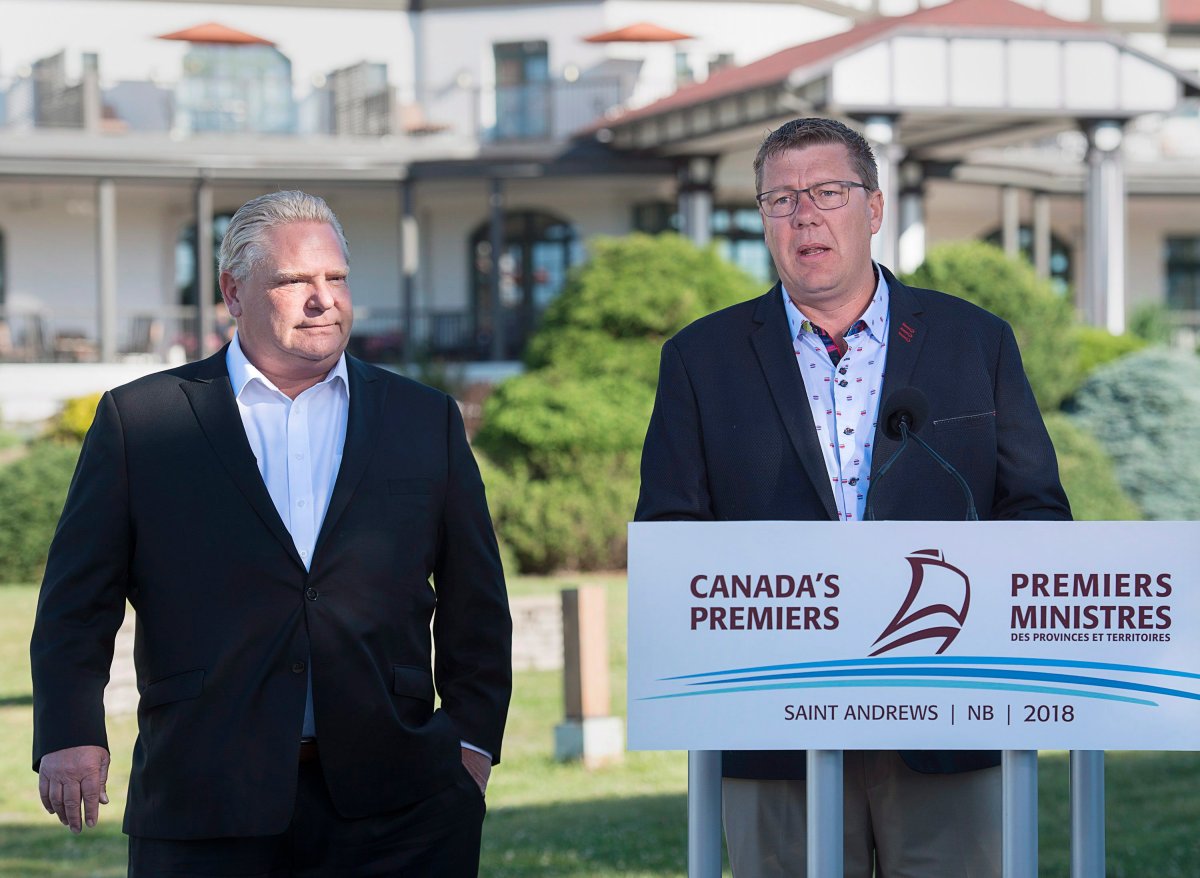B.C. Premier John Horgan hasn’t ruled out British Columbia seeking intervenor status in Saskatchewan’s legal bid to stop a national carbon price.

“We will have to see what the attorney general advises government,” said Horgan. “But at this point we are focused on the jurisdictional question and the reference question we have undertaken in respect to diluted bitumen.”
Horgan took questions from reporters in New Brunswick on Thursday, following a day of meetings with premiers from across the country. Ontario Premier Doug Ford made headlines when he announced support for the court case against Ottawa’s carbon pricing policy.
British Columbia is in the midst of its own jurisdictional legal battle. The B.C. Court of Appeal is currently reviewing whether Horgan’s government has the jurisdictional right to restrict the flow of bitumen through the province by pipeline or by rail.
Both the federal government and Alberta are opposed to B.C.’s legal action, but Horgan said provinces have the right to test jurisdictional issues through the courts, like B.C., Ontario and Saskatchewan are doing.
- B.C. professor quits federal panel in protest of new disability benefit
- ‘Bad welcome to Canada’: White Rock stabbing victim’s wife angered by apparent random attack
- B.C. wildfire season off to early start with more than 100 already burning
- Trio of Metro Vancouver councillors call for end of B.C.’s decriminalization pilot
“I certainly respect their desire to test the jurisdictional question,” said Horgan. “One of the issues we are following in British Columbia is testing environmental jurisdiction when it comes to the transportation of diluted bitumen across British Columbia.”
As for the carbon tax itself, Horgan said he would not get directly involved in convincing Ford and Moe the tax was a good idea, but would take questions from colleagues on how the tax has worked in British Columbia. The province currently has a $35 per tonne carbon tax and plans on hitting the federally mandated $50 per tonne by 2022.
“For me, in British Columbia, we have been quite comfortable with carbon pricing over the last decade. We have a very robust economy. Slightly above five per cent unemployment, balanced budgets this year, next year, the year after that,” said Horgan. “I am hopeful over time, other jurisdictions will understand the importance of climate action so we can all do this on a national scale.”
WATCH HERE: ‘Our reference case remains’: Horgan on controlling pipeline oil flow in B.C.

“I’m prepared to talk to any provincial leader about the positive aspects of the carbon tax in British Columbia.”
Ford’s newly-elected Ontario government has already moved to scrap the province’s cap-and-trade program. Saskatchewan’s government says a one-size-fits-all carbon tax fails to recognize the diverse nature of the Canadian economy.
“This made-in-Ottawa carbon tax plan finds our nation now in this position,” Moe said. “We have two provinces in compliance, we have two provinces in court and we have the rest of the country not meeting the federal carbon tax backstop. Today we’re grateful that the people of Ontario…will join us every step of the way.”
— With files from the Canadian Press




Comments